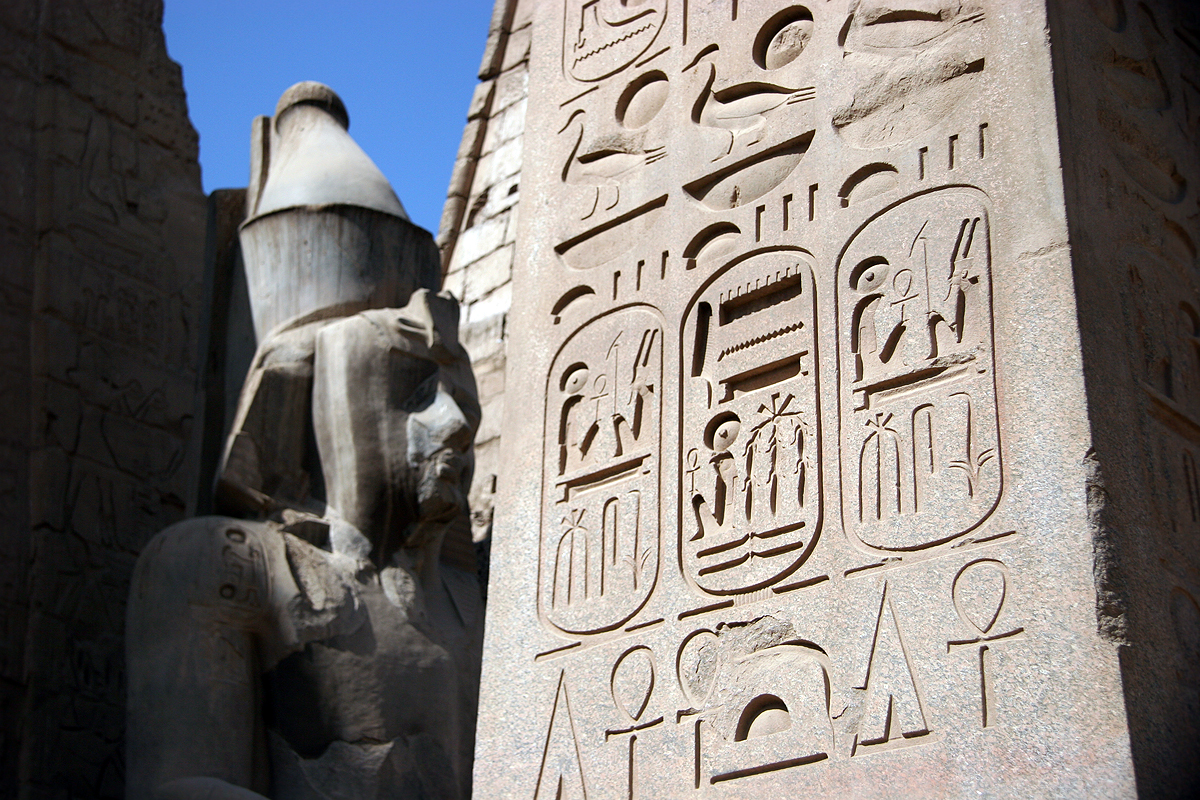The Egyptians used a form of picture writing (hieroglyphics, or sacred carvings), which was deciphered in the 1820s. Scholars had possessed the key only since 1799, when a large, inscribed stone was found near the town of Rosetta in the Nile Delta. This piece of black basalt has a long text chiseled into its surface in three scripts: Greek, hieroglyphics, and another (demotic) Egyptian script developed from hieroglyphics. Although the Greek version was imperfect, it could be read. It proved to be a decree in honor of a pharaoh named Ptolemy V, from 195 B.C., in the period after Alexander the Great’s conquest.
Even so, it took three decades before a French scholar, Jean-Francois Champollion, convinced himself that hieroglyphics were intended to be read phonetically, not symbolically, and so got beyond the mere deciphering of the name and title of Ptolemy V. Knowing the language of the Egyptian Christian church of his own day, which was close to ancient Egyptian although written differently, he gradually puzzled out the hieroglyphics on the stone. Visitors to the British Museum in London can still see the famous slab that made it possible for the nineteenth and twentieth centuries A.D. to understand ancient Egypt.
The equally famous Egyptian Book of the Dead – actually not a book but a series of papyrus chapters to be read by the living and then placed in tombs to help the dead – brings together stories of the gods with hymns and prayers. Egyptian literature includes no epic story of a hero comparable to Gilgamesh, a mortal who cannot quite attain immortality. But it does include love songs, banquet songs, and what we could call fiction, both historical and fantastic. “If I kiss her,” says an Egyptian lover, “and her lips are open, I am happy even without beer” – a sentiment that seems perfectly up to date. “Enjoy thyself as much as thou canst,” says a banquet song, “for a man cannot take his property with him.”
The historical romance of Sinuhe (early Middle Kingdom, c. 1980 s.c.) tells the story of an Egyptian noble who was forced by intrigue into exile in Asia, was elected chief of a tribe there, won a magnificent single combat against a local champion, and, at the end, full of longing for Egypt, was happily recalled by the pharaoh and richly dressed, honored, and given a pyramid of his own for his future tomb.

